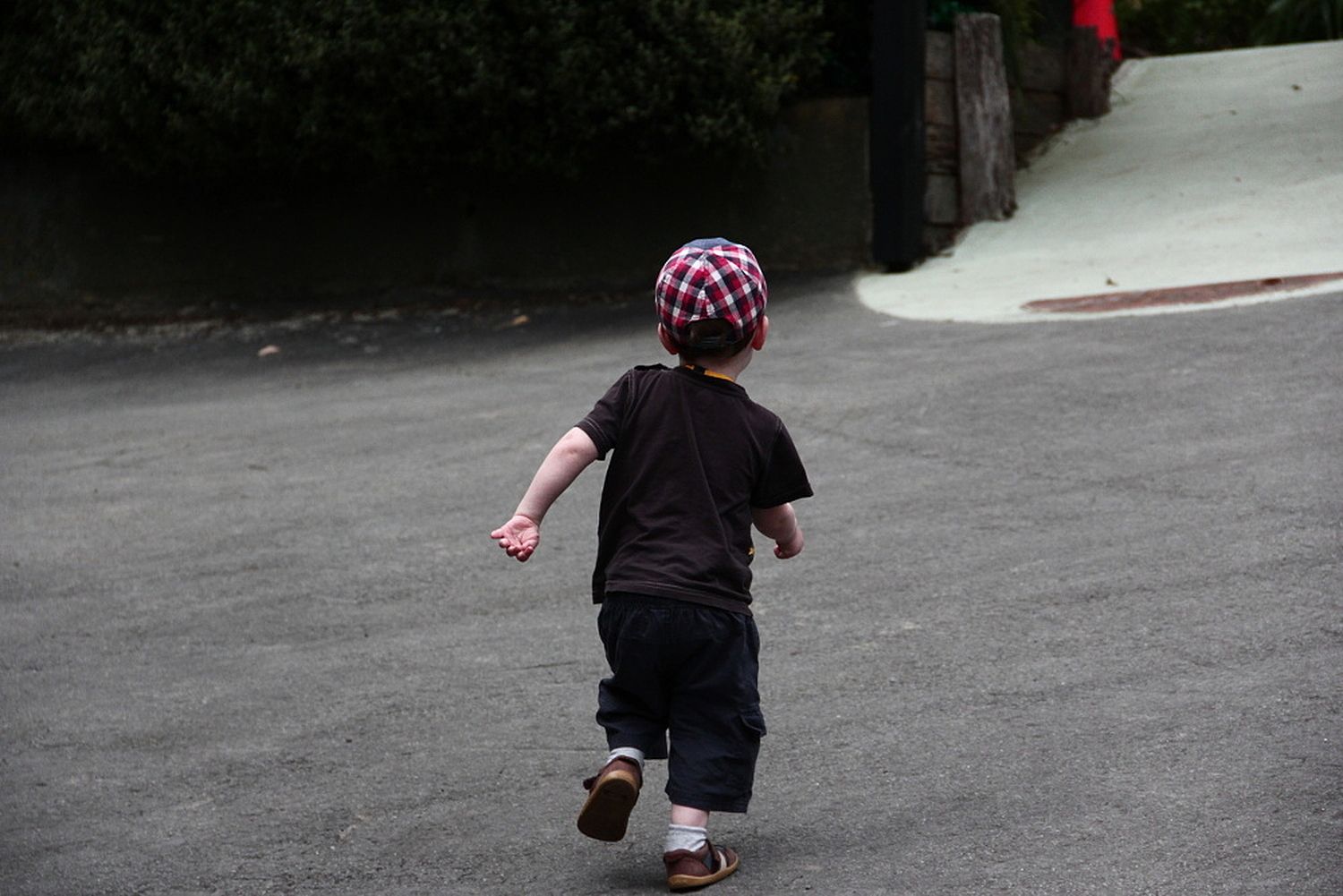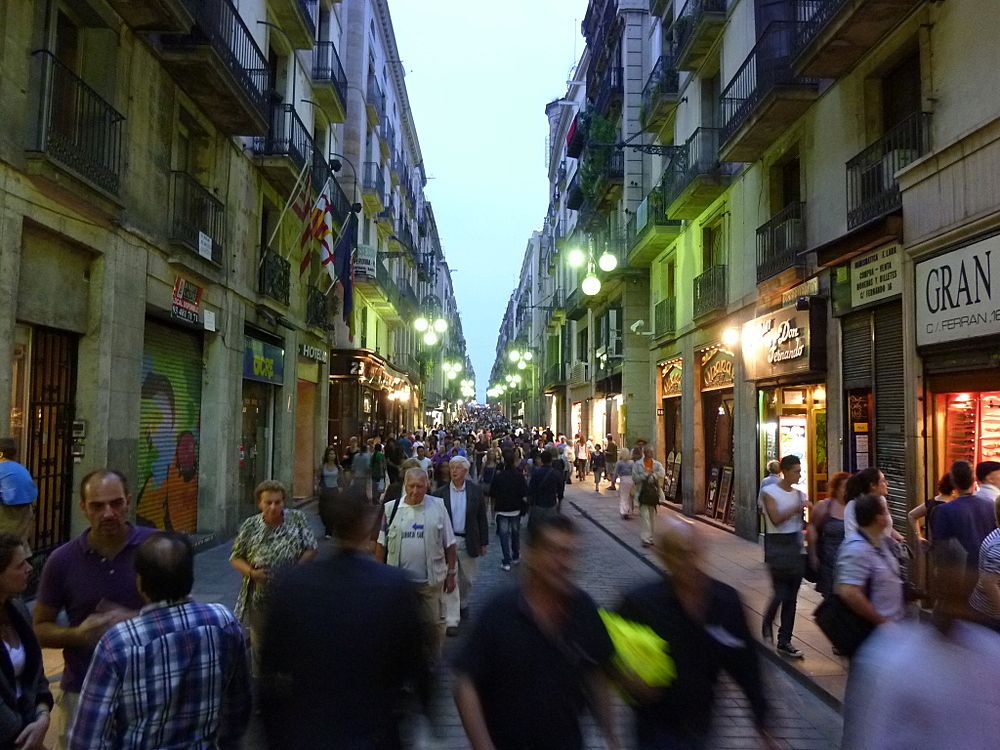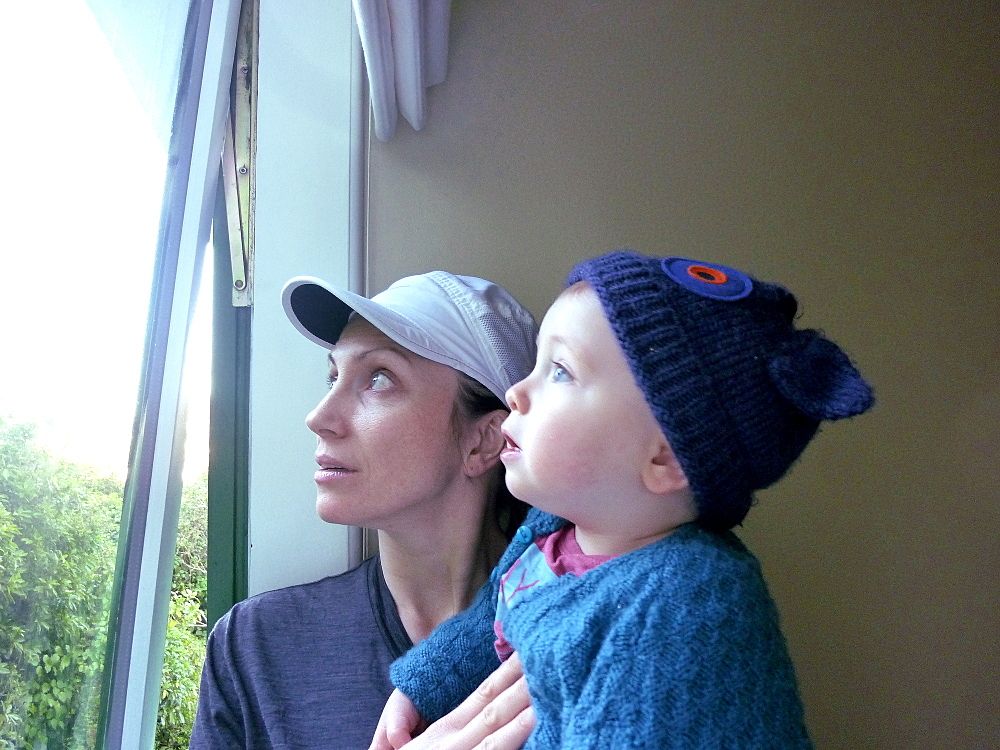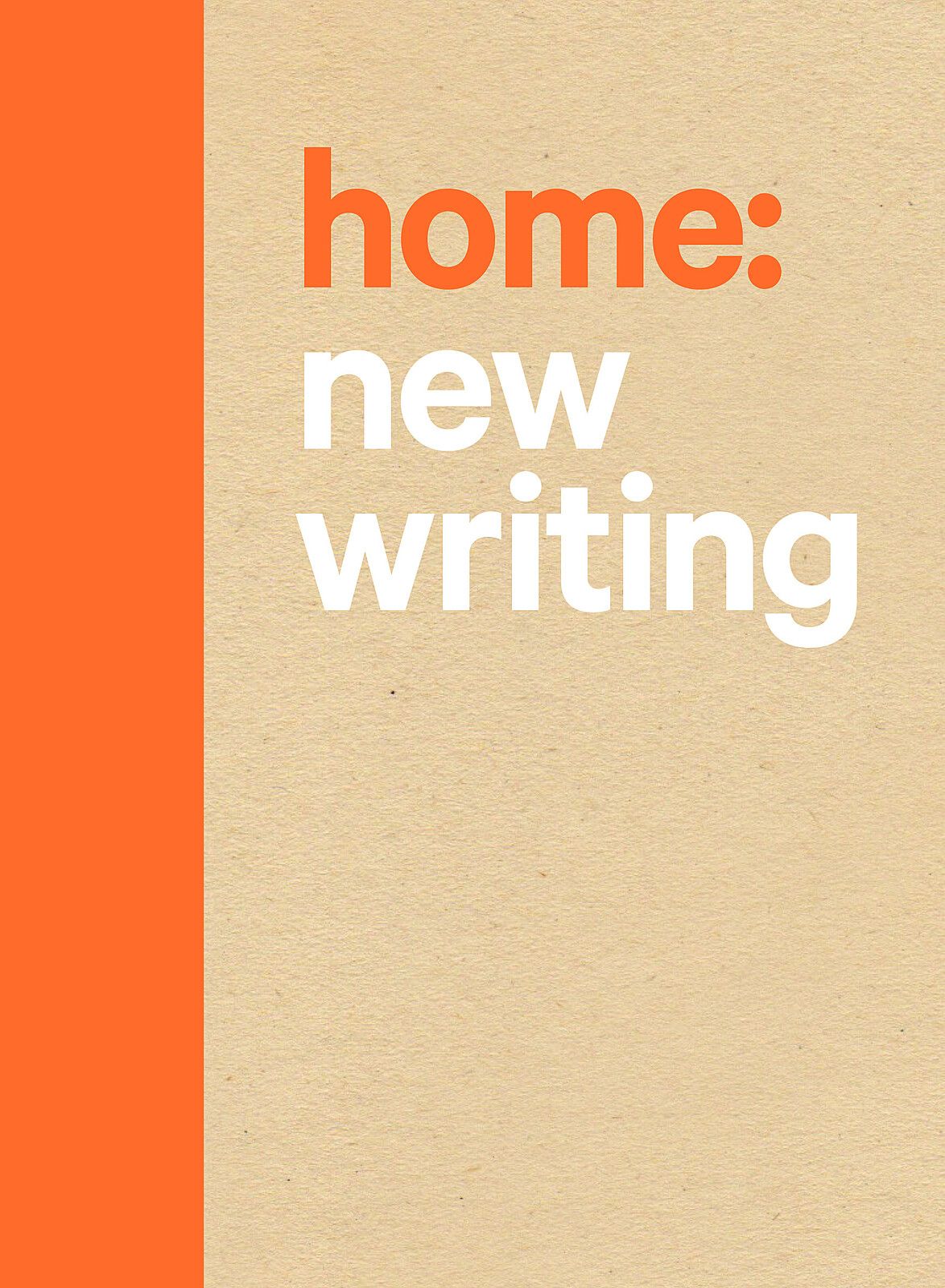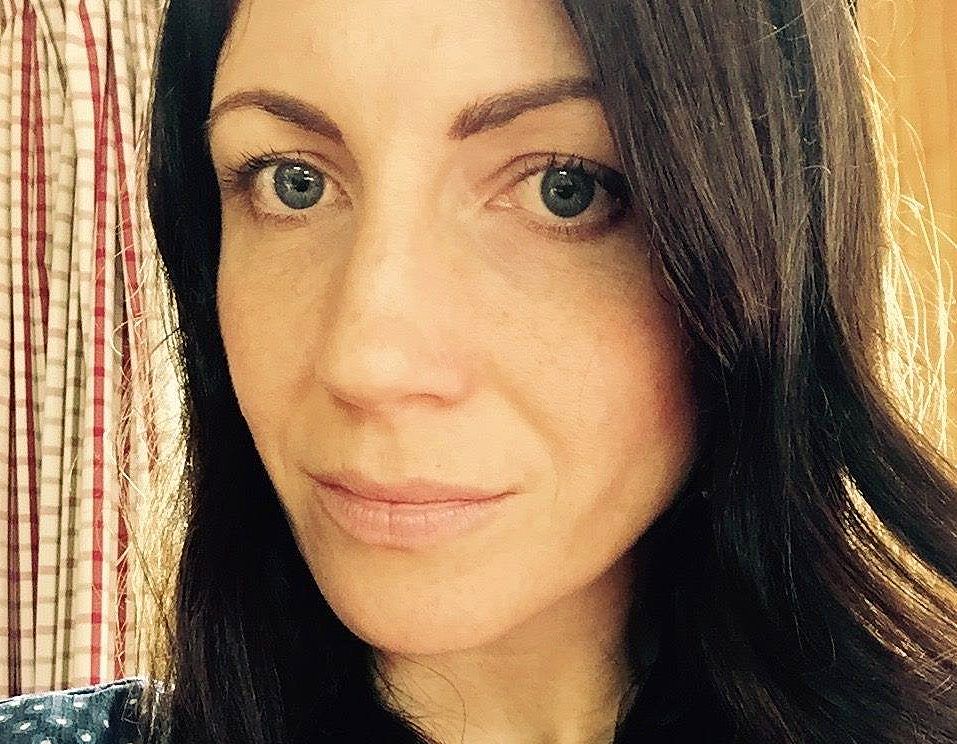Suffering is Optional
In this moving essay, Sarah Jane Barnett writes about womanhood, grief, and how running allows her to feel at home in her body.
In this moving essay, Sarah Jane Barnett writes about womanhood, grief, and how running allows her to feel at home in her body.
I started running in my twenties. I’d never done any regular exercise, so my first attempt involved running the distance between two lampposts, and then walking to the next. The route I took on those first few runs was a loop starting from my parents’ house and out around the suburbs of my childhood. At the time I was essentially homeless. I was staying with my parents after my first marriage had ended, after my husband calmly said on the phone, ‘I don’t desire you any more.’ Looking back, I don’t blame him. I didn’t desire myself either. Dragging my body through the dark streets was the only way to numb the public humiliation of being discarded, to ease the shame and grief.
Being back at my parents’ house was a move back to safety, but it wasn’t a move home. When I first went flatting, I’d often say, ‘I’m going home’ or ‘I’m calling home’ when referring to that 1970s white stucco house. I’d occasionally have nightmares that my parents had sold the house without my knowledge. But during the years of living in other cities, the house had become my parents’ home. It was a long time until I found another place to call home. For the last decade I’ve lived in Wellington where my second husband and I bought and renovated a house. We had a son and made friends. I planted a garden. I composted. At some point this city and house became my home.
Running allowed me to belong in my body, and it’s a home that cannot be taken away.
This is all to say that I’ve lived in many places that did not feel like home, and sometimes for long periods. But this doesn’t mean that I didn’t have a home during these times. The concept of home is often described as the place someone lives permanently, but I would suggest this is only one sort of home. Some days reading a poem feels like coming home, and holding my son feels like home, and standing in Otari Bush with its sonorous bird call — well, that also feels like a kind of home. This experience of home is more than metaphorical. Eventually I walk out of the bush and go back to work, but my sense of home travels with me.
In my experience, the feeling of home relates to belonging and desire. Those first few runs around Christchurch led me to train for a six-kilometre race, then the twelve-kilometre City to Surf, and then a few half marathons. Eventually, seven years after that marital break-up, I ran a marathon. In her essay on female desire, ‘Hunger Makes Me’, Jess Zimmerman asks, ‘What would it take to feel safe being voracious? What would it take to realize that your desires are not monstrous, but human?’
Like many women, I had a difficult and confusing relationship with my body. It’s a tedious story of self-abuse and denial that doesn’t need to be in this essay. What’s important is that running taught me my body was functional, strong and competent. As runner J. Jeremy Wisnewski says, ‘Our body is our perspective on the world … We cannot “put down” our bodies.’ Running allowed me to belong in my body, and it’s a home that cannot be taken away.
What made me think about this particular concept of home was remembering a run while on holiday in Barcelona. I’d been running for eleven years. It was a Friday evening when I left my dank hotel and ran north from the Gothic Quarter. My legs were loose from walking around the museums, so I easily worked my way up Passeig de Gràcia and turned right onto Carrer d’Aragó, a wide leafy avenue that cuts across the city. My feet skimmed the pavement. The night air touched my shoulders and face. It was already dark and the street was busy, but I relaxed with the anonymity of being in a foreign city. My stride lengthened.
As I made my way down Carrer d’Aragó, the buildings changed from glass-fronted offices to ornate stone apartments. The street lamps cast yellow light over the city. Groups of people walked through the fragrant evening. The pleasure of this run was almost unbearable. I was alone. I had no work to do or people to meet. I was known to no one. At that moment, in the exquisite city of Barcelona, I was running entirely for myself out of my desire to work my body.
Zimmerman argues that it is uncommon for a woman to express such desires:
A man’s appetite can be hearty, but a woman with an appetite is always voracious: her hunger always overreaches, because it is not supposed to exist. If she wants food, she is a glutton. If she wants sex, she is a slut. If she wants emotional care-taking, she is a high-maintenance bitch or, worse, an ‘attention whore.’
She goes on to say that women who express desire will ‘worry about seeming “good” — which means not too pushy, not too demanding, not too loud’. Damp with sweat, I didn’t care about being good. I wanted to run.
I turned towards Passeig de Circumvaŀlació, a road that circles a green area that contains the Parliament of Catalonia and Barcelona Zoo. My legs were light and my breath was slow and calm. When I hit the circle road, I realised the streetlights were out. The huge concrete walls of the zoo curved up and away into darkness. Usually I avoid running along dark streets because Wellington’s female runners have a history of being snatched.
A man’s appetite can be hearty, but a woman with an appetite is always voracious.
That night, I ran fast and light. The glow from the city turned the pavement a silvery grey, and monotone graffiti ghosted along the wall. I held myself tense as I churned my legs forwards. The air was thick. Each second was the next second. Each part of me worked in concert — my tendons and muscles, my lungs, my red blood cells. I was running and I was running. Then, suddenly, I was on the cusp of an intersection, noise and colour.
Other runners will know the state I’m describing. The external world becomes dull, and the bright essence of the self comes into focus. Some philosophers think that the pain of running directs our attention inwards, but for me these moments aren’t painful. Instead, my body slips away and I am left with an uncluttered and joyful sense of who I am. In her existentialist essay on running, philosopher Heather Reid quotes what running great George Sheehan said of this experience: ‘For when I run, I am a hunter and the prey is my own self, my own truth.’ I prefer Reid’s own less macho account: ‘The time we spend running is somehow the time when we feel most ourselves.’ Home is also the place where we feel most ourselves.
*
In the years following that trip to Barcelona many things happened. I got married and had a baby. I wrote a doctorate and published two collections of poetry. My father was diagnosed with prostate cancer and then leukaemia. My grandmother, a steady hand in my life, died. My husband and I saved, travelled and put a new roof on the house. These were painful years. I had to subsume my needs and desires for those of a child and the larger family unit. I had to attend to others.
Contemporary Japanese writer Haruki Murakami once said, ‘Pain is inevitable. Suffering is optional. Say you’re running and you start to think, Man this hurts, I can’t take it anymore. The hurt part is an unavoidable reality, but whether or not you can stand any more is up to the runner.’ To run is to be painfully aware of the body and its needs, both physical and emotional.
Carl Jung believed that by holding competing needs in tension, a new and genuine reality would rise from a union between the two. He called this process ‘the transcendent function’, and said it was an activity of the unconscious rather than the conscious mind. I wonder if this is what happens when I run. Through those hard years I made space to run at least three times a week. The woman of my twenties could not have done that. She could not have said, I am important. I am sure other people have easier routes to self-understanding.
Through those hard years I made space to run... The woman of my twenties could not have done that. She could not have said, I am important.
My son turned five this morning. My husband and I constructed a surprise in the living room: one small chocolate cupcake with a lit candle, a shiny new bike, and a 3D printed skull of a sabre-toothed tiger. My son was exuberant. He climbed awkwardly on to the bike, his long limbs at odd angles as he tested his body in this new configuration. He sat at the table and leaned forwards to blow out the candle. He was still dressed in his cotton pyjamas, the fabric thin and soft from washing. I watched him complete a ritual of childhood; and, taking photos and scooping one hand around his warm chest, I was completing a ritual of motherhood. I have seen the fifth birthday from both sides now, in two homes, once as a child and once as a parent.
Shortly after the surprise, my husband and I had an argument. I was trying to work, to email a piece that needed to go out before the weekend, and he kept on interrupting. We whispered heatedly in the hallway. We were aggressively silent in the kitchen. When it was time for them to go out and meet friends, I lay on the bed and my husband went outside. My son ran in to hug me goodbye. ‘It’s okay to be sad,’ he said, and then his cropped hair and black high-tops, his tiny nails and teeth, his father’s legs and the mole on the right-hand side of his back were gone out the door.
The black pressure stayed with me all morning. I needed to write — this essay, in fact — but I could not find the space inside myself. I felt selfishly and irrationally angry at being bothered. At being needed. At not being left the fuck alone. Over the years I’ve tried to write about these feelings and about running, but I can never fully quantify what it means to be a runner; I can never express how running has saved me. In his memoir Murakami said, ‘I just run. I run in a void. Or maybe I should put it the other way: I run in order to acquire a void.’ Zimmerman also mentions the void when describing eating disorders in young women:
People frequently claim that eating disorders, like anything common to adolescent girls, are just ‘a cry for attention.’ As someone who was once an adolescent girl, I suspect they are at least partially the opposite: a cry against hunger and need, an attempt to kick away that profoundly human desire to be paid mind. To shut the door on the void.
I’ve never had an eating disorder, but I recognise the desire to shut away my needs. My terror of the void, of feeling and being seen — well, that was the reason I argued this morning.
Even though I’ve come a long way, I sometimes fear my sense of home will disappear. I am afraid my legs will get broken and I won’t be able to run. I often have nightmares that I’ve sold my house instead of my parents’ house. These irrational moments boil down to one fear: that I will revert to the woman of my twenties. I think about her often. Sometimes she comes up because I am friends with my ex-husband and his partner. They also have a child and a home in Wellington. A few months ago, he and I were at a party together, sitting on our friend’s lounge floor, and someone asked us if we were married. We both laughed because it was funny and awkward, but it also reminded me of how our bodies carry the past with us. I hope that one day I can stop running away from her.
I can never fully quantify what it means to be a runner; I can never express how running has saved me.
Eventually I gave up thrashing this essay and went for a run. I ran the five- kilometre route that I always take on weekday mornings. It’s an out and back that curves down my street with its gentle hills and clear view over the bush reserves of Wellington. I have run this route twice a week for the last five years, so around five hundred times. Each part of the route has a meaning. There’s the part where I stop to roll up my running tights when I get too hot. There’s the old fence where I stretch my calves, and soon after this the house where I turn back. I often sit by this house for a minute. If I close my eyes I can see each house and turn of this route like a movie in my mind.
The repetition of my morning route seems to echo the grind of my life as it sneaks towards middle age. I am not sad about this fact. If anything, it’s necessary. Reid says:
The journey toward existentialist authenticity … usually begins with a separation from day-to-day reality … The world makes serious demands on all of us; we must work, we must follow social customs, we must be concerned about our social position. It is normal to feel tied down, maybe even imprisoned or enslaved by these serious demands of the world … There is a sense in which we are all prisoners.
Running is an acknowledgement of my freedom to turn away from those demands, at least for a time. Or, to put it another way, to turn towards myself. In these moments, my breath in the air and the sky clear above the trees, I find a deep quietness.
This essay on home, running, and the body is excerpted from Home: New Writing, published by Massey University Press. To celebrate its launch we are giving away three copies.
Feature Image: The author's son running at Wellington Zoo. Photo Credit: Matt Bialostocki.
